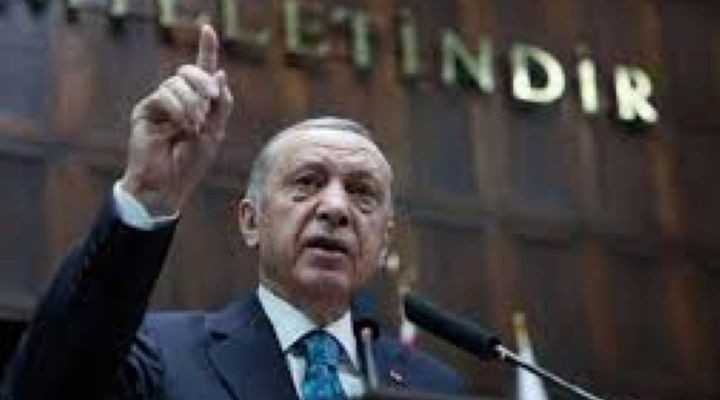Erdoğan’s inaction over Gaza

Verbal condemnation needs to be matched by practical measures
Turkish President Recep Tayyip Erdoğan is coming under heavy criticism in Turkey and from within his governing AK party — not to mention the opposition — these days, and his popularity in the Arab and Islamic world has been plummeting. In both cases, the reason is his failure to take practical seps to oppose Israel’s war of extermination and ethnic cleansing in the Gaza Strip, in contrast to far less powerful but more principled countries like Yemen.
Erdoğan has, to be sure, made some strong and scathing statements against Israeli Prime Minister Benjamin Netanyahu, unlike any other Islamic or Arab head of state. He has also fiercely denounced Israel’s massacres of women, children, and civilians Israel. But his critics berate him for not matching his words with deeds, such as cutting diplomatic ties or restricting commerce between the two countries.
The talk in Turkey these days is of the existence of a huge fleet of 67 cargo ships of various sizes, owned by the sons of senior AKP officials close to Erdoğan, that have been ferrying fuel and food supplies to the occupation state. This reportedly covers 56% of its needs for fresh and dried fruits and vegetables, and 7% of its oil requirements. This trade is highly profitable for those sons, and also for the Turkish treasury in the form of taxes and tariffs. But it is an affront to Turkey’s Islamic heritage and to human moral values.
Erdoğan knows about these exports and has resisted pressure from senior AKP officials to halt them, according to well-placed sources. He tells aides he has to put Turkey’s economic interests above all other considerations at a time when the national currency, the lira, is under growing pressure and has lost much of its value in recent months.
Erdoğan and his supporters might point out that some Arab states have set up an overland bridge — from the UAE via Saudi Arabia and Jordan — to supply the occupation state with produce and goods, and that none of the five Arab countries that normalised relations with it (Egypt, Jordan, the UAE, Bahrain, and Morocco) have severed relations or closed down their embassies. So why should non-Arab Turkey be blamed and castigated?
That is factually true. But it does not spare Turkey and Erdoğan of the charge of letting down the Palestinian people, abandoning the defenceless innocents of Gaza, and failing to act to support them and their resistance movements led by Hamas — whose leaders have strong strategic ties with Turkey. Turkey should not judge itself by the standards of the Arab normalisers, but the countries that resisted normalisation and stand up to the occupation, and have made to pay a heavy price for doing so, including Syria, Lebanon, Algeria, Yemen, Tunisia, Iraq, and others.
Turkey is not Bahrain or the UAE, nor even Egypt. It is the successor of an Islamic empire that ruled the region for hundreds of years. It sent its troops into Syria under the banner of championing the oppressed, ending persecution, and achieving justice. Its inaction in the face of the massacres and ethnic cleansing in Gaza makes a mockery of those claims and destroys their credibility.
Turkey has a powerful army and huge navy. Erdoğan could have used it to protect relief ships taking food and medicine to the starved and besieged people of Gaza. Some would argue his moral and religious duty would be to use those forces to protect those people, not just save them from being starved to death.
Erdoğan won the hearts of hundreds of millions of Muslims and Arabs in 2009 when he stood up to former Israeli prime minister Shimon Peres, and exposed his racism and brutality, in response to a less deadly and devastating Israeli assault on Gaza. But he is rapidly losing that admiration by continuing to stand by and look on after nearly six months of slaughter.
Erdoğan could still salvage his reputation and standing by taking practical measures to confront the Israeli assault using all means available: halting all Turkish exports to Tel Aviv, shuttering the Turkish embassy there, and threatening — or even using — force to save two million fellow Muslims (and former Ottoman subjects) from extermination. Better late than never.
Might Erdoğan heed the appeals for concrete action, especially ahead of impending municipal elections that may prove decisive, for better or worse, for his political future? That is most fervently to be hoped for.
https://www.raialyoum.com/erdogans-inaction-over-gaza/
 TheAltWorld
TheAltWorld 
0 thoughts on “Erdoğan’s inaction over Gaza”